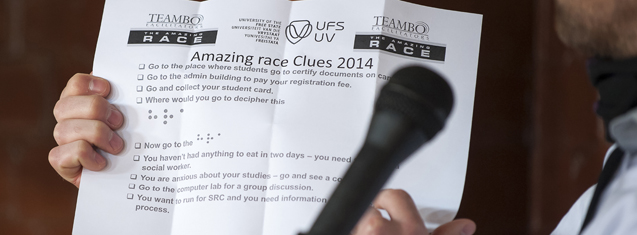Latest News Archive
Please select Category, Year, and then Month to display items
07 January 2018
Photo Charl Devenish
 Dr Anneke van der Spoel van Dijk is invested in contributing
to the global effort of stopping TB by 2035.
Dr Anneke van der Spoel van Dijk is invested in contributing
to the global effort of stopping TB by 2035.
The work of Dr Anneke van der Spoel van Dijk investigates the spread of TB in the Free State population using techniques such as next generation sequencing, spoligotyping and MIRU-VNTR typing. Dr Van der Spoel van Dijk, a senior medical scientist in the Department of Medical Microbiology at the University of the Free State (UFS) also looks at drug resistance in her research. This work informs decisions about how best to treat patients with multidrug-resistant TB (MDR-TB).
She employs rapid molecular techniques to track one of Africa’s most serious diseases, tuberculosis (TB).
Drug resistance
Scientists assist the National Health Laboratory Service and Department of Health in trying to refine the diagnostic tools to identify these cases earlier. Dr Van der Spoel van Dijk explains: “Until recently, it took up to two years to fine-tune treatment decisions for patients with MDR-TB. Patients get a cocktail of anti-TB drugs, but it takes time to find the right combination. Re-infection and relapse (patients stopping treatment for several reasons) add to the diagnostic and treatment management challenges.
Enormous impact
“Now doctors can reduce the time needed for diagnostic certainty to about seven days, while new drugs allow reduction of treatment from more than 18 to nine months. This can have an enormous impact on the life of many patients.”
Dr Van der Spoel van Dijk’s work forms part of research in the faculty looking at resistance development in TB strains. She is currently also doing her doctoral thesis on the differences and incidence of MDR-TB among adolescents versus adults. Dr Van der Spoel van Dijk says: “It is a complicated picture, but we hope to unravel it to support better diagnostic tools and patient care.”
As part of the National Health Laboratory Service, her department is playing an important role in TB diagnostics and the training of scientists and future pathologists. “Our work is contributing to the global vision to stop TB by 2035,” Dr Van der Spoel van Dijk says.
Staff experience running in the shoes of students
2014-07-29

Photo: Sonia Small
From having to upload money on a card and buying lunch at Thakaneng Bridge to naming the SRC members, some UFS staff members got to experience life as a full-time student on our Bloemfontein Campus.
During their 2014 Purpose Summit on 22 July, staff from Student Affairs competed against each other in an Amazing Race.
“We got to see how students actually run around on campus each day,” said Elize Rall from Residence Life. “We always hear from parents how their children have to go from one place on campus to the other to get things done … and now we know what they are talking about.”
Staff who attended the summit was divided into teams during the morning’s practical session. Similar to the popular television programme, The Amazing Race, there were quite a few checkpoints – often with some formidable challenges and quizzes.
To make their tasks even more difficult, the participants were forced to take the route students with disabilities would have taken. This means: no stairs could be climbed and no curbs could be jumped – they could only use ramps and elevators.
"The experience was extra-ordinary," said Lerato Masapo from Residence Life. "I learned a lot and I didn't realise how difficult it was for our disabled students to move around the campus.
"What struck me the most was the distance between every building and how far the students had to walk to reach certain places. This made me realise the importance and responsibility on us as staff members to know our environment and assist students accordingly in that regard."